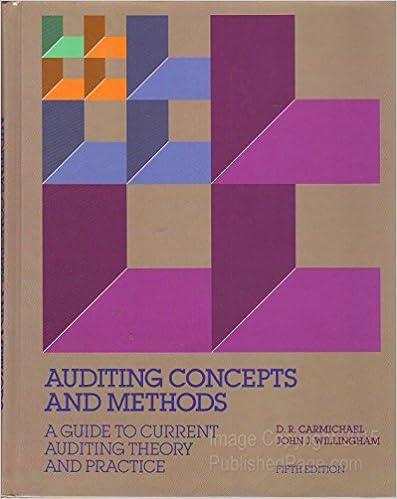The following questions relate to the auditor's responsibility with respect to litigation, claims, and assessments. Select the
Question:
The following questions relate to the auditor's responsibility with respect to litigation, claims, and assessments. Select the best response.
a. When auditing contingent liabilities, which of the following procedures would be least effective?
1. Reading the minutes of the board of directors.
2. Reviewing the bank confirmation letter.
3. Examining customer confirmation replies.
4. Examining invoices for professional services.
b. The letter of audit inquiry addressed to the client's legal counsel will not ordinarily be
1. Sent to a lawyer who was engaged by the audit client during the year and soon thereafter resigned the engagement.
2. A source of corroboration of the information originally obtained from management concerning litigation, claims, and assessments.
3. Limited to references concerning only pending or threatened litigation with respect to which the lawyer has been engaged.
4. Needed during the audit of clients whose securities are not registered with the SEC.
c. An attorney is responding to an independent auditor as a result of the audit client's letter of inquiry. The attorney may appropriately limit the response to
1. Asserted claims and litigation.
2. Matters to which the attorney has given substantive attention in the form of legal consultation or representation.
3. Asserted, overtly threatened, or pending claims and litigation.
4. Items which have an extremely high probability of being resolved to the client's detriment.
d. When obtaining evidence regarding litigation against a client, the CPA would be least interested in determining
1. An estimate of when the matter will be resolved.
2. The period in which the underlying cause of the litigation occurred.
3. The probability of an unfavorable outcome.
4. An estimate of the potential loss.
Step by Step Answer:

Auditing Concepts And Methods A Guide To Current Auditing Theory And Practice
ISBN: 9780070099999
5th Edition
Authors: Mcgraw-Hill





